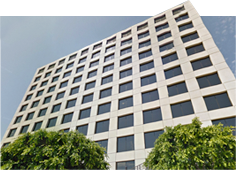Premium Processing Changes Take Effect – Additional Applications Eligible and Filing Fees to Increase
Authorization for Premium Processing for applications beyond I-129 (Petition for Nonimmigrant Worker) and I-140 (Petition for Immigrant Worker) was signed into law by the President on September 30, 2020. The President signed H.R. 8337 the Continuing Appropriations Act, 2021 and Other Extensions Act, which, among other provisions, will fund the government through December 11, 2020. Included in the Act is verbiage addressing USCIS’s budget shortfall, authorizing Premium Processing for several different applications and changing the costs/timelines for Premium Processing.
While the law takes effect immediately, the increased fees and expanded availability of Premium Processing will not take effect until USCIS is able to implement each respective provision.
The first provision to take effect was implemented on October 19, 2020. On that day, USCIS raised its Premium Processing Filing fee for Form I-907, Request for Premium Processing, from $1,440 to $2,500, for all filings except those from petitioners requesting H-2B or R-1 nonimmigrant status. The Premium Processing fee for petitioners filing Form I-129 requesting H-2B or R-1 nonimmigrant status is increasing from $1,440 to $1,500.
Any Form I-907 postmarked on or after Oct. 19, 2020 must include the new fee amount or will be rejected.
While the exact dates of implementation for the other provisions of the Act have not yet been finalized as of the date of writing, and should only be viewed as a proposal until implementation is formally announced, according to USCIS’ announcement, Premium Processing services from USCIS may soon also be available for:
- EB-1 petitions for Multinational Managers and Executives or EB-2 National Interest Waiver (“NIW”) petitions – the law mandates the Premium Processing fee can be no greater than $2,500 and processing time no greater than 45 days. This will provide a profound improvement to the 6-12 month current processing time for such applications. Multinational companies will be able to have managers and executives undertake permanent work in the U.S. sooner, while individuals meeting the criteria for benefiting the U.S. National Interest will have their application fast-tracked.
- Form I-539 (Change of status requests for F, J and M) – the law mandates that the fee can be no greater than $1,750 and processing time be no greater than 30 days. By eliminating the unpredictability inherent in matching program start dates with the normal 5-12 month processing time, and the need to sometimes file “bridge petitions” to keep one’s underlying nonimmigrant status active, this will provide a huge benefit to individuals seeking to change to a student or exchange visitor status. This Premium Processing expansion, for example, may help someone who wishes to study in the U.S. pursuant to an I-20 in F-1 status, or to undertake a fellowship as a J-1 exchange scholar pursuant to a DS-2019.
- Form I-539 (Change of status requests for dependents seeking E, H, L, O, P and R) – the Act mandates the filing fee should be no greater than $1,750 and processing time is no greater than 30 days. This increased processing speed will help spouses and children in the above categories, and may provide a benefit to those dependent visa/status types permitting work authorization (such as E-2s and H-4s, under certain circumstances).
- Application Form I-765 (Application for Employment Authorization) – the Act mandates the Premium Processing fee can be set no greater than $1,750 and processing time is no greater than 30 days.
The Act also clarifies that the processing time clock does not begin until “all prerequisites for adjudication are received” by DHS. In other words, receipt of a Request for Evidence (“RFE”) can slow the process. The Act also states that providing expanded premium processing services does not result in an increase in processing times for other benefit applications, which we hope holds true.






